- Home
- Karen Hawkins
Hurst 02 - Scandal in Scotland Page 2
Hurst 02 - Scandal in Scotland Read online
Page 2
“You don’t know me. You never did.” She spoke with such quiet dignity that he was almost taken aback. And oddly unwilling to toss her out just yet.
He leaned back in his chair and crossed his arms over his chest. He could easily pick her up and throw her from his cabin, but he was loathe to touch her, unwilling to awaken memories that could be dredged back to the surface if his skin touched hers.
Some things were better left unexamined.
She stood as if restless, her lush figure on display as she crossed to the port window. “So have I wasted my time in coming here?”
His jaw tightened. “Yes.”
“I see.” Her gaze fell to the floor and she bit her lip. Finally, she sighed and gestured gracefully toward the decanter and glasses on his sideboard. “Shall we at least drink to our brief reunion?”
“I’ll drink to our final parting,” he shot back.
Opening the decanter, she tossed him a rueful smile over her shoulder. “Still the same no-nonsense William, I see.” She lifted the decanter and took a delicate sniff. “A very nice port.”
“Thank you,” he said shortly, watching as she poured out two glasses.
“You didn’t use to be so discerning in your choice of drink,” she said.
“I’m far more discerning in all of my pleasures now.”
Her lips thinned, but she merely held one glass up to regard the color. “Very impressive.”
“It’s from Napoleon’s private supply.” William wasn’t sure why he felt the need to mention that, but he had.
“I shall enjoy it all the more then.” She replaced the stopper on the decanter and brought him a glass, then carried her own back to her seat. She sat and delicately swirled the liquid. “Is there any way to convince you to change your mind? If I told you what I need, you might reconsider.”
“If there’s one thing you taught me, it’s to never trust an answer that’s actually another question.”
She paused from taking a sip. “I taught you that?”
“Oh, you taught me all sorts of things—none of them good.” He took a deep drink of the port, the sharpness clearing his throat. “Enough of this. I have work to do; you have two minutes to tell me why you are here.”
Her gaze narrowed and she pushed her glass away. “Fine. I came here because someone is blackmailing me.”
“What does that have to do with me?”
Anger flashed across her face, so swift that he believed it real. “William, I am desperate. I don’t know who is doing it or why, but it must stop.”
“But you do know what information they hold over your head. Information you don’t wish Colchester to know.” William watched her closed expression as he drained his glass. “Did you stray, Marcail? Is that the secret? That you can no more be true to a man than a dog can stop himself from chasing a squirrel?”
Her eyes flashed fire. “It’s nothing so tawdry, damn it! If my secret were revealed it wouldn’t be I who would pay, but others.”
“What others?”
“Their names don’t matter.” She folded her lips firmly.
“I am done with secrets and lies. I think you should go.” William pushed his empty glass away, suddenly tired of it all. Tired by the deceptions that had left him so beaten all those years ago.
A regretful smile curved one side of her lovely mouth. “Ah, William. Life never gave us a chance, did it?”
What in hell did that mean? “Just go, Marcail.” His mouth felt dry, and he wished his glass wasn’t empty.
Marcail rose and came toward him. “Oh, I shall leave. But not until you’ve helped me.”
“Damn you, I’ve already said I won’t—won’t help.” Why was he slurring his words?
He looked at his fingers, cupped loosely around his empty glass. I can’t feel my hand. The thought floated through his mind with an odd detachment.
But he’d had only one glass. It took far more than that to—
He looked up at Marcail to say, “You put something in my drink,” but his mouth wouldn’t form the words. His vision suddenly blurred, and a wave of weakness crashed through him.
No. He gathered every ounce of his strength and forced his numb arms to push him to his feet, where he swayed dangerously.
She frowned. “William, don’t! You’ll hurt yourself—”
He toppled forward. Damn. She’s poisoned me.
A letter from Michael Hurst to his brother William, describing his first sight of Athens.
Upon arriving in this ancient metropolis, I felt as if I were perched upon the precipice of potential. This feeling was so powerful, I thought I had a fever. It is surprising how many times a good feeling can be confused with a bad one. Often one is unsure which feeling it really is until much later.
CHAPTER 2
William saw Marcail step forward, her slight body breaking his fall just before he landed on the floor.
Why has she drugged me? He was too numb to feel anything, his emotions as muted as his body. He watched with unemotional interest as she eased him to the floor and then made a pillow of his cloak and placed it under his head, her hands careful and sure.
Then, ever so gently, she slipped the chain from around his neck and went to his desk. The lowering sunlight cast her in a golden glow that made her seem ethereal, an angel of such purity, beauty, and exquisite grace that it pained him to watch her.
It was that grace that had won him in the first place. Not her face nor her figure nor her rich voice, all of which had helped catapult her to fame. When she walked, she drew a man’s attention and held it, almost as if she were dancing to music that only she could hear.
Her dark hair gleamed in the lingering light as she unlocked his desk and reached in.
How much gold was in the cubbyhole? Two hundred guineas? Three? I’ll have to check the records once she leaves, the little thief. But why does she need it? Does she have debts she can’t tell her protector about?
She straightened, and in her hand was the velvet bag holding the ancient artifact William needed to ransom his brother.
Even in his drugged state, fury trickled through. I must have that artifact. I cannot free Michael without it!
She tugged open the bag and glanced inside, her brows lowering as she slid the slender onyx box free. She traced the tip of a finger over the edge of the box, her expression perplexed. Uncertain, she glanced his way and met his gaze.
Her cheeks darkened as if she blushed, and she hurriedly tucked the artifact away.
William wanted to revile her, to cut her to shreds, but all he could do was glare at her with all of the force of his anger, which was burning through the drug’s haze.
He tried with all of his strength to move and his toes curled, which had been impossible just two moments ago. The drug is already wearing off! Woe betide the wench soon.
Even if he had to crawl on his hands and knees, he’d teach her a lesson she wouldn’t forget.
She tied her cloak about her neck, then slid the box into a deep pocket. “I hate to leave you upon the floor, but I must.”
He ground his teeth and glared.
She paused at his side and, with an almost regretful look, she stooped and placed a hand upon his cheek. Her gaze was bright, as if with unshed tears. “Don’t try to follow me, William. You won’t be able to reach me.”
But he would reach her. Even if it took him the rest of his life, he’d exact a vengeance so harsh, so cold—
She bent over him, her long, silky hair sweeping over his cheek in a gossamer caress, the faint scent of her exotic perfume making his heart pound faster.
“I am sorry to do this, mon cher, but I have no choice.” She brushed her soft lips over his, the kiss as gentle as sea mist. Then, in a voice tinged with remorse, she said, “To you, this is a trinket. To me, it is freedom.”
With that cryptic statement, she rose and pulled her hood over her head, tucking her hair out of sight. “I knew you wouldn’t help, so this was my only recourse. I did give you
a chance beforehand.”
She stepped toward the door, but William’s fingers had closed about her hem. He held tightly to the skirt, his gaze blazing. Once he was free of this drug, he’d teach her the danger of crossing him.
“Good-bye, William.” She yanked her skirt from his grasp and crossed to the doorway. There, she looked back. “I know you won’t believe me, but I wish you well. I always have.”
She left the cabin, quietly closing the door behind her, leaving William in the growing darkness.
A letter from Mary Hurst to her brother Michael as he prepared for his first expedition.
I hesitate to mention this, as I know you’re quite busy with your preparations, but I am worried about William. Since he came back from sea he’s so quiet, solemn, and—I think—sad. I asked him what was wrong, and he laughed bitterly and said he’d learned an important lesson.
I wonder if perhaps he fell in love and it didn’t prosper?
Mother is certain he will overcome whatever is bothering him, though she has been taking special pains to tempt his appetite. I think that it will take much more than rabbit stew to heal a truly broken heart.
CHAPTER 3
Tea, my lady?”
Lady MacToth closed her book and placed it on the overstuffed arm of her chair, the delicate wrinkles about her green eyes crinkling with her smile. “Briggs, you read my mind.”
“As I do every day at four.” Smiling gently, he held the silver tray a bit lower, noting how my lady’s delicate, blue-veined hands shook slightly when she took her cup.
Her hands seemed to shake more each day, a fact that weighed upon his heart, though he was careful not to acknowledge it by so much as a blink. He had been with Lady MacToth since he was a lad of sixteen and she a newly married woman of twenty. She was quite different then, a blazing actress feted by the world until she’d stunned society by marrying wealthy Lord MacToth, a man several decades older and far above her in social class. To the bride and groom it was the happiest day of their lives, but to some members of the ton, the marriage was a social disaster. Lord MacToth had married beneath his station and they would not soon forget it.
“More sugar, my lady?”
“Please!” Lady MacToth smiled like a child as he dropped two lumps of sugar into the steaming tea. His mistress took such joy in the simple things in life. It was unfortunate Lord MacToth hadn’t been able to do the same.
He had been determined to prove to the world that his choice of a wife was no mistake, and he did so in grand fashion. He bought her the largest town house in Mayfair and filled it with enough fine furnishings and priceless art to earn it the nickname the Castle; dressed her as finely as any princess and draped her in enough jewels to win over a sultana. But try as he might, he could not buy society’s cold approval.
Society did not forget, and it never forgave.
Briggs sighed to think of those early days. Lady MacToth had blithely ignored the slights and cuts, for her life had been filled with so many already that a few more were nothing to her. But Lord MacToth had been horribly hurt when people he’d considered his friends had turned their backs on his bride.
Briggs could have told them how Lord and Lady MacToth had fallen wildly, deeply, and passionately in love at very first sight, and it was that love that reconciled Lord MacToth to his new life. He avoided the society that had rejected his beloved and traveled to the Continent, where they were able to enjoy each other almost exclusively. Three years after the wedding came the birth of a daughter, who joined the couple in their solitary life of travel and luxurious pleasures.
Those were the Idyllic Years. Unfortunately, Lord MacToth’s absence from English soil, where most of his investments were held, combined with a significant increase in spending as he attempted to shut out the ugliness of the world by dazzling his lovely young wife and new child with the finest of everything, caused a steady and unfortunate reversal in his fortune.
Worse, Lord MacToth turned a blind eye to every warning sign of his fortune’s impending doom, including increasingly strident letters from his solicitors to return home to repair the situation.
Years passed, his fortune dwindled, and Lord MacToth found it harder and harder to shield his wife and daughter from the truth.
Briggs believed it was that strain which ultimately led to my lord’s blindingly sudden death. One day, his lordship complained of being tired and went to lie down for a nap. He never rose again.
Lady MacToth had been devastated, but she was made of sterner material than her husband. Upon being informed by his late lordship’s solicitor of the estate’s distressed situation, Lady MacToth faced reality without a flinch. She took her daughter out of the expensive boarding school in France and brought her home to England, placed the four largest of their five houses up for sale, dismissed unnecessary staff, and ruthlessly sold almost all of the famed MacToth treasures.
Lady MacToth oversaw each sale herself, and through her wily negotiations received top prices, too.
But when all was said and done and the mound of bills paid, Lady MacToth had only enough to continue to live very quietly and modestly in the remaining house on the edge of Mayfair.
Surrounded on all sides by up-and-coming tradesmen and their families, its location would not be satisfactory to a high stickler. But Lady MacToth had never wished to join society and she thought the small house lovely. She with her daughter, Lucinda lived there very simply until the child grew up, married, and moved into her own house.
As he lifted a small plate, Briggs repressed a sigh at the thought of Miss Lucinda. “A tea cake, my lady?”
Lady MacToth chuckled, her self-conscious gurgle of laughter making her sound like a young girl. “Did you hear my stomach rumble?”
“No, indeed.” Briggs picked up the tongs and placed a small cake upon a delicate Wedgewood plate and set it by her ladyship. “It’s just that I know you so well, my lady.”
“That you do.” Lady MacToth took a nibble of the moist cake. “Briggs, it’s lemon. My favorite! I don’t know what I’d do without you.”
Neither did Briggs—for with the exception of one of her granddaughters who visited often, Lady MacToth was quite alone in the world.
A deep gong sounded and my lady looked up. “Are we expecting a visitor?”
“No, my lady.” Briggs stepped to the nearby window, lifted the edge of the curtain, and then smiled. “It’s Miss Marcail.”
“How lovely!” Lady MacToth took a sip of tea and carefully replaced her teacup, the bottom chattering against the saucer. “I wonder why she’s come unannounced? She usually sends a note before—”
The door opened and a footman stood to one side as her ladyship’s granddaughter entered the sitting room. Tall and slender, her delicate hourglass figure encased in a dashing pelisse of sea green set with navy blue ruches of ribbons, Miss Marcail Beauchamp was the picture of fashion. She tossed aside her veil, removed her fetching bonnet, and shook out the black curls that fell artfully about her face.
There was no denying her breathtaking beauty as she breezed across the room, a younger version of her once beautiful grandmother.
Briggs bowed. “Miss Marcail, what a pleasure.”
She flashed a friendly smile. “Good afternoon, Briggs. How is your wife? I hope she’s feeling better than when I was here last time. She had the toothache, I believe.”
The Morning Post had once reported that a Russian prince had paid ten thousand pounds for the pleasure of having Miss Beauchamp sing a song at his birthday fete. Hearing that voice, Briggs could only imagine that the astronomical sum had been worth every penny. “My wife is feeling much improved, miss. Thank you.”
Lady MacToth held out her hands to her granddaughter. “You are just in time for tea.”
“That sounds lovely.” Marcail gave her grandmother a swift hug. “Good afternoon, Grandmamma. I hope you’re well.”
Lady MacToth patted the space beside her on the settee. “I’m fine. Wondering, perhaps, why
you’ve come in such haste that you didn’t send a note as you usually do?”
Marcail cast a glance at Briggs.
The elderly butler immediately bowed and walked toward the door. “I shall bring tea and more cakes.”
As soon as the door closed behind him, Marcail turned to her grandmother. “Yes, I’m fine. Yes, I’m eating well. And no, I’m not in love. Now that that’s out of the way, we can talk.”
Grandmamma’s lips quirked, her eyes twinkling. “Am I so predictable that you can answer all of my questions before I even speak them?”
“Yes, but only in the dearest way possible.”
Marcail was close to her grandmamma, which was a good thing for them both. Except for each other they were quite alone in the world, a state which was bearable when one was twenty-seven, but not as much so—Marcail suspected—at a more advanced age.
That was Mother’s fault, for allowing Father’s silly pretensions to define who she could and could not see. Marcail’s father was Sir Mangus Ferguson, an impoverished Irish peer overly taken with his own lineage, and who did not approve of Grandmamma—though he was more than willing to accept her money until his profligate spending had forced her to cut him off.
Father had never forgiven her and he had forbidden his wife and five daughters to ever speak to Grandmamma again. It was a good thing Marcail never listened to Father. Even at fifteen, she’d already realized he was a braggart and a fool.
A soft knock announced Briggs, who appeared with a tray. Within seconds, she had a cup of hot tea and a plate with a tea cake, as a snowy white linen napkin settled across her lap. “Thank you, Briggs.”
“My pleasure, miss.” He turned to Grandmamma and asked in a gentle tone, “Would you like more tea before I retire, my lady?”
“Oh, no. I’m fine. Thank you, Briggs.”
He bowed and quietly left.

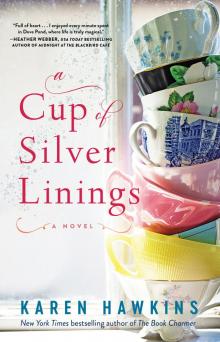 A Cup of Silver Linings
A Cup of Silver Linings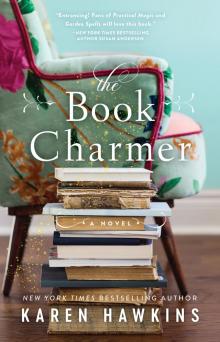 The Book Charmer
The Book Charmer The Prince and I
The Prince and I![Duchess Diaries [2] How to Pursue a Princess Read online](http://i1.bookreadfree.com/i/03/12/duchess_diaries_[2]_how_to_pursue_a_princess_preview.jpg) Duchess Diaries [2] How to Pursue a Princess
Duchess Diaries [2] How to Pursue a Princess To Scotland, With Love
To Scotland, With Love Her Master and Commander
Her Master and Commander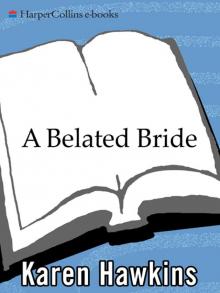 A Belated Bride
A Belated Bride 1794_Charlotte
1794_Charlotte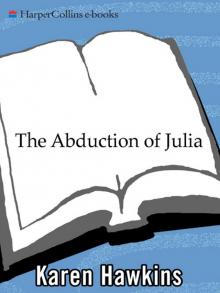 The Abduction of Julia
The Abduction of Julia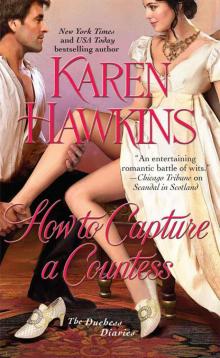 How to Capture a Countess (Duchess Diaries 1)
How to Capture a Countess (Duchess Diaries 1) Karen Hawkins - MacLean 1 How to Abduct a Highland Lord
Karen Hawkins - MacLean 1 How to Abduct a Highland Lord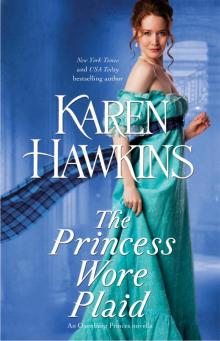 The Princess Wore Plaid
The Princess Wore Plaid How to Abduct a Highland Lord
How to Abduct a Highland Lord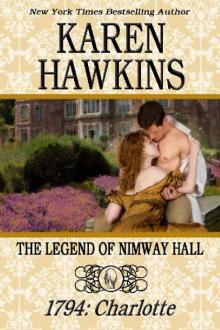 THE LEGEND OF NIMWAY HALL: 1794 - CHARLOTTE
THE LEGEND OF NIMWAY HALL: 1794 - CHARLOTTE Caught by the Scot
Caught by the Scot The Lady in the Tower
The Lady in the Tower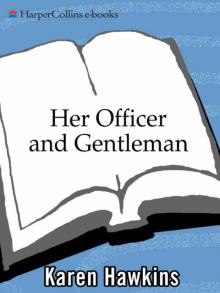 Her Officer and Gentleman
Her Officer and Gentleman Hurst 02 - Scandal in Scotland
Hurst 02 - Scandal in Scotland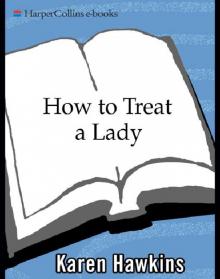 How to Treat a Lady
How to Treat a Lady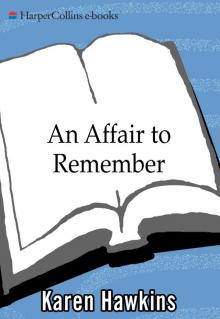 An Affair to Remember
An Affair to Remember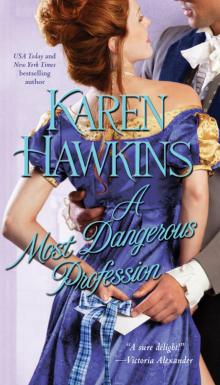 A Most Dangerous Profession
A Most Dangerous Profession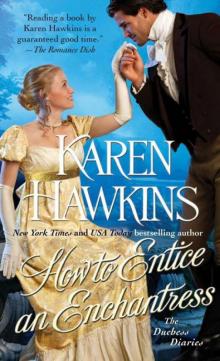 How to Entice an Enchantress
How to Entice an Enchantress The MacLeans: Sleepless in Scotland
The MacLeans: Sleepless in Scotland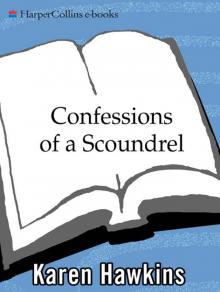 Confessions of a Scoundrel
Confessions of a Scoundrel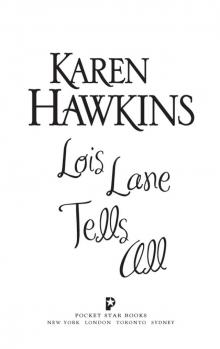 Lois Lane Tells All
Lois Lane Tells All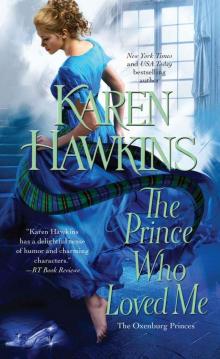 The Prince Who Loved Me (The Oxenburg Princes)
The Prince Who Loved Me (The Oxenburg Princes) The Seduction of Sara
The Seduction of Sara The Laird Who Loved Me
The Laird Who Loved Me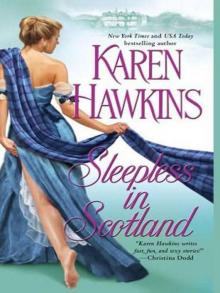 The MacLeans - Sleepless in Scotla
The MacLeans - Sleepless in Scotla And the Bride Wore Plaid
And the Bride Wore Plaid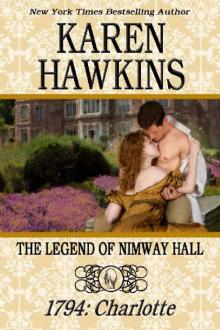 THE LEGEND OF NIMWAY HALL_1794_CHARLOTTE
THE LEGEND OF NIMWAY HALL_1794_CHARLOTTE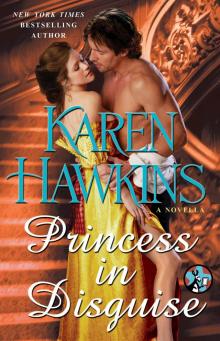 Princess in Disguise
Princess in Disguise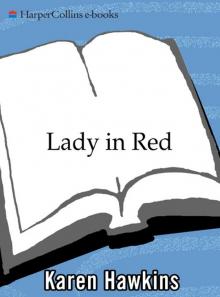 Lady in Red
Lady in Red Much Ado About Marriage
Much Ado About Marriage Twelve Kisses to Midnight: A Novella (The Oxenburg Princes)
Twelve Kisses to Midnight: A Novella (The Oxenburg Princes) Mad for the Plaid
Mad for the Plaid An Encounter at Hyde Park
An Encounter at Hyde Park